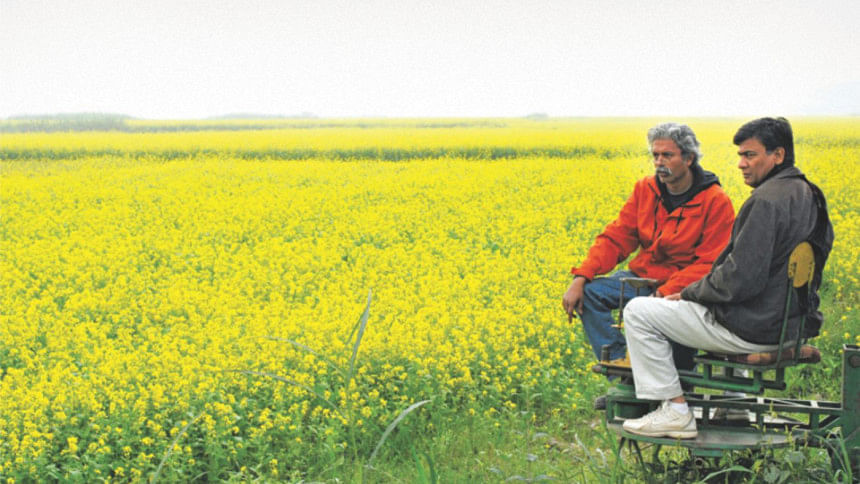Remembering the Storytellers

I had first met Tareque Masud in 2003-2004 at Words n' Pages – a bookstore in Gulshan 2, which had shot to popularity amongst book lovers, students, artists, filmmakers etc. It is quite unfortunate that the bookstore moved and is almost non-existent now. It was definitely a place where the contemporary thinkers, artists and students would meet. Back then, life was simpler, especially for young students like ourselves, who would flock to the bookstore from North South University, Banani campus, and go through books, DVDs, share one cup of hot chocolate (it came expensive!) and check out some of the workshops and talks on music, films, sports and so much more.
During one such workshop, Catherine and Tareque Masud spoke about filmmaking, storytelling, and the experience of creating Matir Moyna – a film that had earned acclaims from many parts of the world. The couple also spoke about the filming and the editing of the famous documentary Muktir Gaan, where young people in the early 70s went around the country on a truck, singing about peace and speaking about freedom.
It was a chilly evening, the talk was being held on the roof top of Words n' Pages and there were not too many attendees. Yet, I remember being transfixed at the visual images that would dance in front of me as Masud would speak of his stories. I could see that he had a way with the young minds, would answer patiently to questions raised and instantly brainstorm an idea or two with the students sitting around him.
"Tareque Masud has always been and still remains a great inspiration for the younger filmmakers in Bangladesh," says Mostofa Sarwar Farooki, an award winning filmmaker. "Culturally we have a strange hierarchical system in Bangladesh where younger ones are always discouraged by the older ones. But he was a great exception who always used to believe in the younger filmmakers' potential. No matter who you were, you could always approach him, share your dreams, and receive inspiring words from him. I personally owe him a lot. I clearly remember when I was having a very tough fight with the orthodox intelligentsia regarding use of informal dialects, naturalistic acting, and choosing subjects from everyday lives, he was the one who stood up and wrote in favour of me. He also inspired us to believe in ourselves. The fact that his film Matir Moyna got selected by Directors Fortnight was a big boost for the future filmmakers. It made us believe that "yes we can go beyond!"
On August 13, 2011, Masud, along with his team, encountered a deadly accident, while returning to Dhaka from Manikganj after visiting a shooting location. His team included Mishuk Munier, a well-known cinematographer, TV journalist and the then CEO of ATN News. Both Masud and Munier died in the accident. The team was working on shooting locations for a new movie, Kagojer Phool (The Paper Flower).
Munier was also the son of the martyred Bengali intellectual Munier Chowdhury who was killed by collaborators during the liberation war of 1971. "We have to realise that Mishuk was an amazing personality in the field of Bangladeshi media," says Muhammad Jahangir, Media Analyst and Senior Lecturer. "From his writings to his cinematography, Munier showcased brilliance. Losing personalities like Mishuk and Tareque have been extremely unfortunate, especially for a country where the media industry, films and stories are developing and changing for the better."
The deaths of Tareque Masud and Mishuk Munier shook the pillars of the media industry in Bangladesh. However, the strength and conviction with which they spread their ideas and messages to the young, the ambitious and the aspiring still hold firm and true.

 For all latest news, follow The Daily Star's Google News channel.
For all latest news, follow The Daily Star's Google News channel. 



Comments